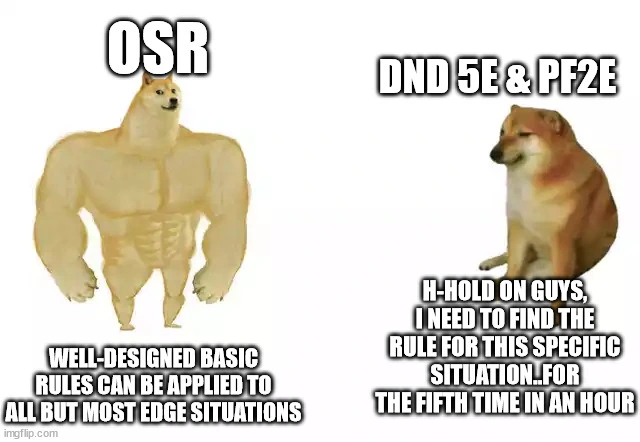I think there's a harmful view that ttrpgs are like a meal the GM cooks and delivers to the players which they either enjoy or not rather than a collaboratory effort of mutual play.
This is beautifully said. The kind of adversarial approach we see so often, and I see it quite often with DND, is harmful. Of course this is not the only way things have to be, but the context seems to set it up like that more often than not.
Complexity of rules and mechanics tend to lead to adjudication because of the way it can be interpreted. I find that in other systems, particularly in OSR style stuff, you get a different kind of thing. It's not a rule, but a tool. This is kind of what I have loved about games like Mork Borg lately. Rules are simple, easily applied, and when you start to look into the world of supplemental material, there's thousands, if not tens of thousands of additional rules and tables, you can apply to any situation. Take them or leave them. Apply them or don't. Use them once, never or every time.
Ultimately, you do what the situation calls for to make for an interesting story, and just like you said, that takes trust between you and the players to talk about and determine what that is.

